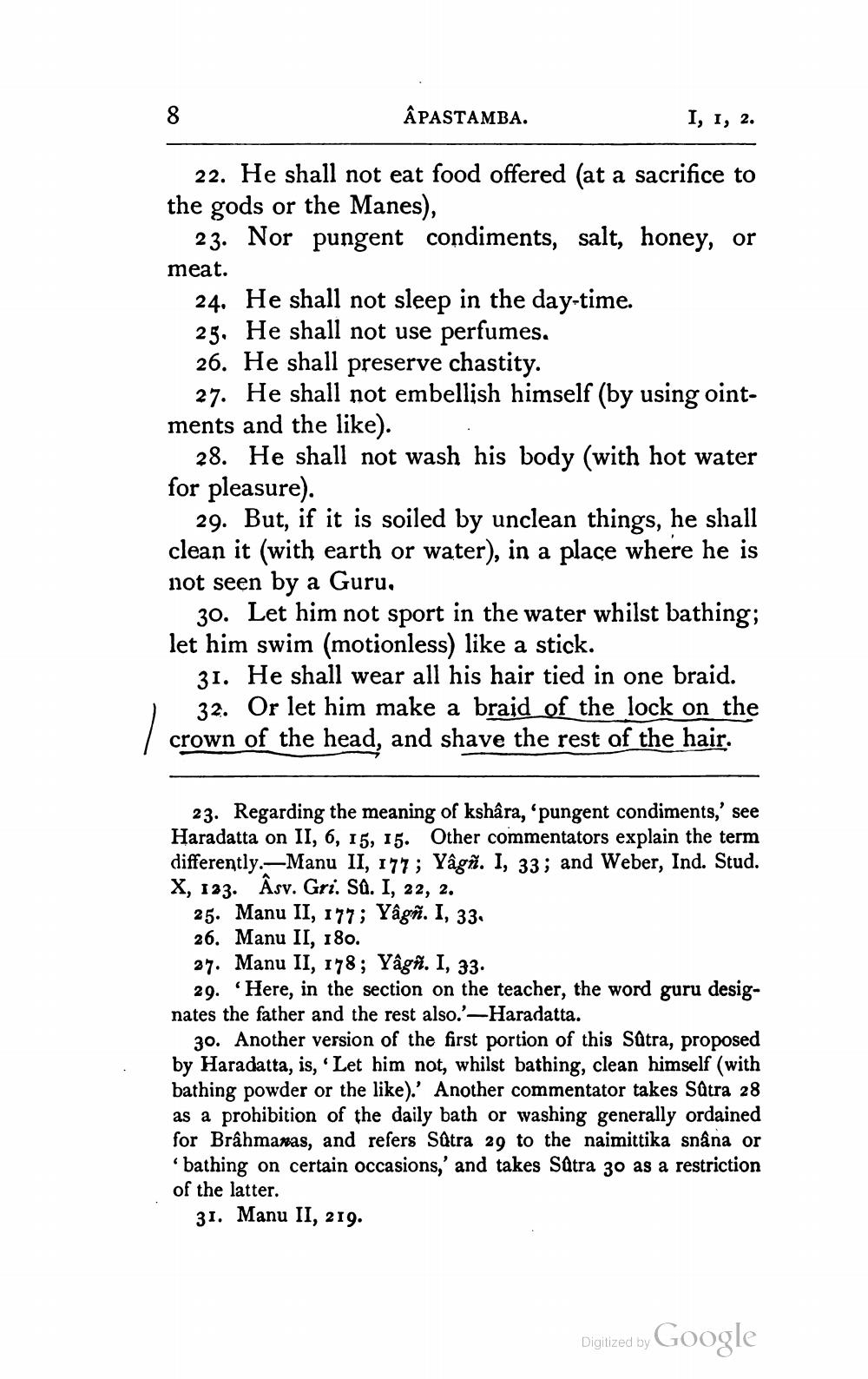________________
ÂPASTAMBA.
I, 1, 2.
22. He shall not eat food offered (at a sacrifice to the gods or the Manes),
23. Nor pungent condiments, salt, honey, or meat.
24. He shall not sleep in the day-time. 25. He shall not use perfumes. 26. He shall preserve chastity.
27. He shall not embellish himself (by using ointments and the like).
28. He shall not wash his body (with hot water for pleasure).
29. But, if it is soiled by unclean things, he shall clean it (with earth or water), in a place where he is not seen by a Guru,
30. Let him not sport in the water whilst bathing; let him swim (motionless) like a stick.
31. He shall wear all his hair tied in one braid.
32. Or let him make a braid of the lock on the crown of the head, and shave the rest of the hair.
23. Regarding the meaning of kshâra, 'pungent condiments,' see Haradatta on II, 6, 15, 15. Other commentators explain the term differently.—Manu II, 177 ; Yâgñ. I, 33; and Weber, Ind. Stud. X, 123. Asv. Gri. Sû. I, 22, 2.
25. Manu II, 177; Yâgñ. I, 33. 26. Manu II, 18o. 27. Manu II, 178; Yagñ. I, 33.
29. 'Here, in the section on the teacher, the word guru designates the father and the rest also.'-Haradatta.
30. Another version of the first portion of this Satra, proposed by Haradatta, is, 'Let him not, whilst bathing, clean himself (with bathing powder or the like).' Another commentator takes Sätra 28 as a prohibition of the daily bath or washing generally ordained for Brahmanas, and refers Satra 29 to the naimittika snâna or 'bathing on certain occasions,' and takes Sätra 30 as a restriction of the latter.
31. Manu II, 219.
Digitized by Google




